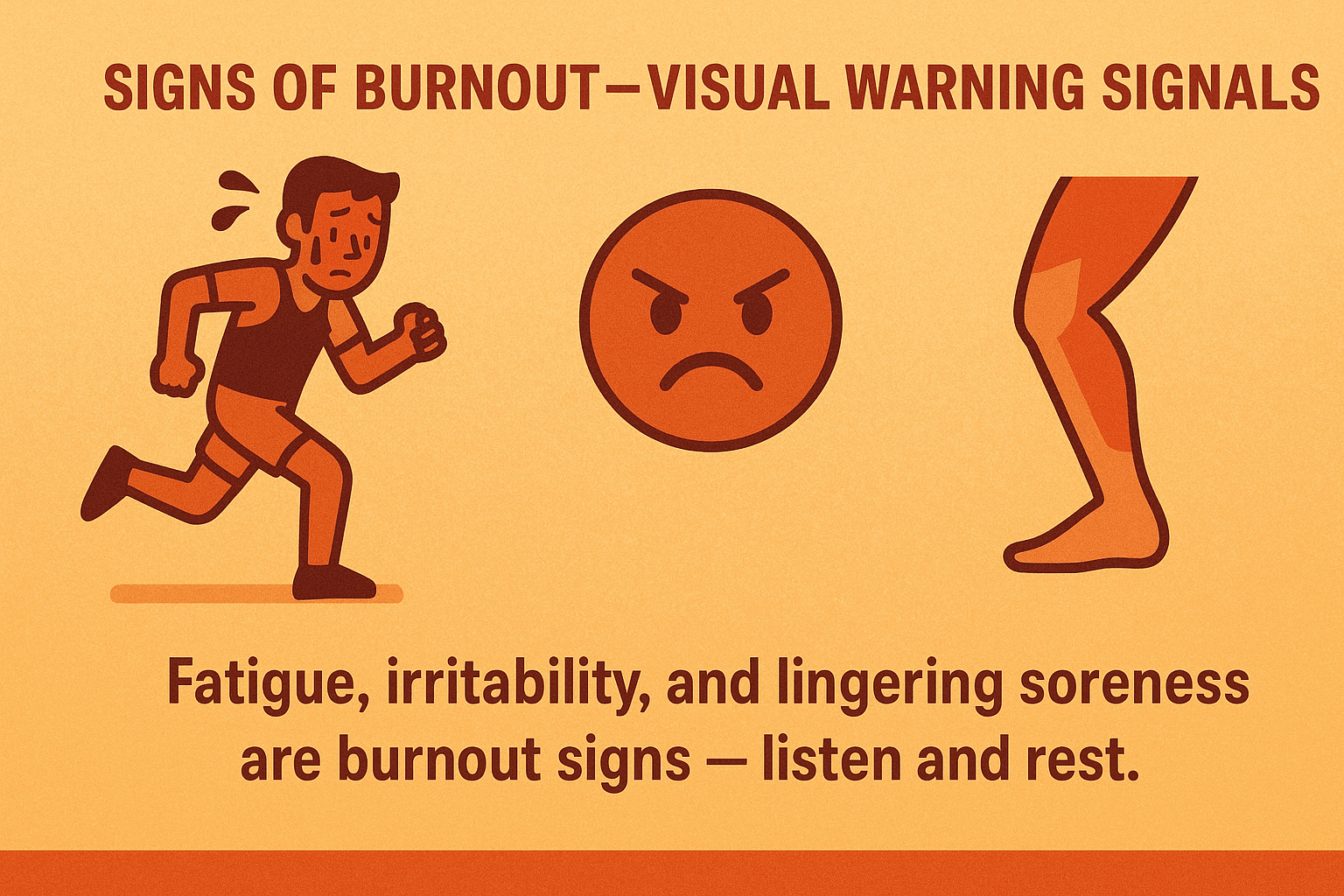When I started running, burnout hit me like a brick wall. One week I was fired up, ready to crush it—and then suddenly, I was exhausted, sore, and seriously questioning why I even bothered.
If that sounds familiar, you’re not alone.
Over the years after, I learned that pacing myself, mixing things up, and listening to my body are the real keys to sticking with running.
In this article, I’ll share the tips that helped me push through that tough first month—and how you can avoid burning out too.
Ready to keep moving without feeling wiped out? Let’s get into it.
Slow Down
One of the biggest mistakes I made early on was doing way too much too fast.
Those first few weeks were rough—always tired, sore, and frustrated. I tried to run too much, too soon.
Here’s the deal: You don’t have to run like you’re in a race right away.
Trust me, you don’t want to burn out after just one week. You need to keep that spark alive for the long run.
It’s all about being consistent, not pushing too hard in the beginning.
My Best Advice:
- Start with 2-3 easy runs a week.
- Take walking breaks if you need them.
- Keep it simple, no pressure.
It’s not about running the fastest. It’s about making running a regular part of your life.
Mix It Up
I used to run the same route over and over again. It felt like I was stuck in a loop—kind of like Groundhog Day, but with more sweat.
But then, one day, I found a cool new trail by the river. It was the best decision I ever made. Now, I can’t stop running there.
Here’s what you need to do:
- Change it up! Try running in a new neighborhood or add some hills to your route.
- A little variety will make running feel fresh again.
When you mix things up, running stops feeling like a chore and starts feeling like an adventure.
Cross-Train
Let me save you some trouble—running every day will wear you out. No doubt about it.
You’ll feel great after a couple of runs, but trust me, your legs are going to start complaining.
That’s where cross-training comes in.
Find something else to do—bike, swim, do yoga, or just go for a walk.
Your legs need a break, and trust me, those rest days are a must. Mix it up, and you’ll feel stronger when you get back out there.
Listen to Your Body—And Rest When You Need It
Running is a mental challenge, but it’s also a physical one. If you’re pushing too hard, you’re just asking for burnout.
I’ve been there—running when I should’ve been resting. It only led to injuries and more frustration.
Overtraining is real, and it’s like running on empty—you’ll just crash.
Your first month? The fatigue is real, but if you listen to your body and take breaks, you’ll handle it just fine.
Key Takeaways:
- If you’re feeling wiped out, take a day off. Your body is trying to tell you something.
- Watch out for signs like feeling cranky or sore that won’t go away.
- If you’re sore, do something easy like walking or light cycling to recover.
Rest is key to staying strong. Don’t skip it if you want to keep running regularly.
Make It Fun—Or Don’t Do It At All
Here’s the truth—if running feels like a chore, you’re doing it wrong.
I’ve had plenty of runs where it felt like I was dragging a sled through mud. But when I stopped worrying about my time and just enjoyed running, that’s when it really clicked.
You’re not a robot—you’re a person. Find something fun about your run.
Maybe it’s a new route, a podcast, or a friend who’ll talk your ear off the whole time.
If it’s not fun, it’ll feel like torture, and that’s when burnout creeps in.
Conclusion:
The first month? Yeah, it’s tough. But if you pace yourself, mix things up, listen to your body, and don’t expect to be perfect, you’ll not only make it through—you’ll actually enjoy it.
Forget about chasing speed or distance—just focus on consistency and having fun.
Stick with it, take care of your body, and soon running will feel as natural as breathing.
Trust me, you’ve got this.
FAQs
How can I avoid burnout in my first month of running?
- Start slow, mix in cross-training, and listen to your body when it needs rest. Focus on being consistent instead of fast or distance-focused.
What are the best ways to recover after a tough run?
- Rest, take it easy with walking or swimming, and get enough sleep and hydration to help your muscles recover.
How do I know if I’m pushing myself too hard while running?
- If you’re always tired, sore for days, or getting irritable, it might mean you’re overdoing it. Take a rest day and pay attention to how your body feels.
How often should I take rest days during my first month of running?
- Try for at least one or two rest days a week, depending on how your body feels. Recovery is key to getting stronger.
What should I eat before and after a run to prevent burnout?
- Have a light snack before your run with carbs and protein. Afterward, make sure you eat a balanced meal with protein, carbs, and healthy fats to help you recover.

